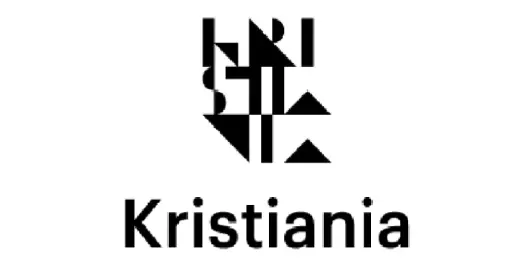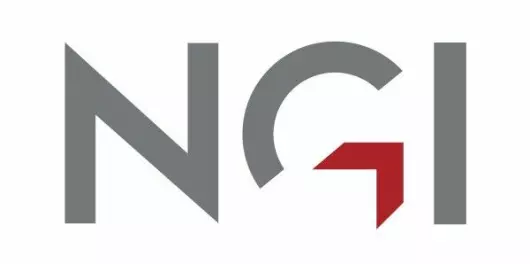Ledig stilling på Universitetet i Oslo
Blindern og Urbygningen (Foto: Wikimedia og Colourbox)
Research Fellow on social inequality, language development and school achievement
Deadline: 05.02.2020
Job description
Universitetet i Oslo
The University of Oslo is Norway’s oldest and highest ranked educational and research institution, with 28 000 students and 7000 employees. With its broad range of academic disciplines and internationally recognised research communities, UiO is an important contributor to society.
The Department of Special Needs Education is one of the three departments at UiO's Faculty of Educational Sciences.The department has today approximately 25 permanent employees that work with research, 14 temporary research fellows and postdoctoral fellows, in addition to 12 administrative employees. The department has approximately 800 students distributed between bachelor- and master’s degree studies in Special Needs Education, master’s degree studies in Special Needs Education, as well as PhD-studies.
Applications are invited for a position as Research Fellow in the project “Socioeconomic gaps in language development and school achievement: Mechanisms of inequality and opportunity” (EQOP). The fellowship period is up to 4 years, with 3 years devoted to research education. The position entails a compulsory work load of 25% that consists of teaching and supervision duties and research assistance.
The position is based at the Department of Special Needs Education, Faculty of Educational Sciences, University of Oslo, in close collaboration with partners at Department of Psychology and Department of Sociology and Human Geography at the University of Oslo, RAND Corporation, and Boston College. The project is funded by a European Research Council Consolidator grant.
In this project, we investigate causes of social inequality in children’s language development and school achievement. We also examine whether early childhood education and care (ECEC) improves opportunities for disadvantaged children, and whether the benefits of ECEC for one- and two- year- olds are greater than the costs. The project draws on quasi-experimental designs in unique data, including national registries linked with the Norwegian Mother, Father, and Child Cohort Study (MoBa), and including large genetic data and family data. Further information about the project can be found at the following web page: www.uio.no/eqop.
The position will be linked to one of the work packages in the project: The first aims to identify causal mechanisms of social inequality in language development and school achievement, both within the family and the community. The second aims to test whether a national universal ECEC program for toddlers can reduce social inequality in educational opportunities and outcomes, and the circumstances under which this may happen. The third aims to estimate the societal costs of social inequality in educational outcomes and the net benefits of the ECEC program. Applicants should indicate which of the work packages are of particular interest, if any.
More about the position
We seek candidates with a background in educational sciences, psychology, economics, sociology, or other relevant fields. The candidate must have good quantitative skills, and a genuine interest for the topic of the project. The successful candidate is expected to participate in an interdisciplinary and international research group, using world class data to publish research at a high level.
The research fellow must take part in the Faculty’s approved PhD program and is expected to complete the project within the set fellowship period. The main purpose of the fellowship is research training leading to the successful completion of a PhD degree. Please see our web site for more information.
Qualification requirements
Applicants must satisfy the requirements for admission to the Faculty’s PhD program.
This includes:
- Documented successful completion of a Master’s degree or an equivalent qualification in educational sciences, psychology, economics, sociology, epidemiology, or other relevant fields
- Minimum grade B or equivalent for the Master’s degree (ECTS grading scale) and explicit indication of the grade achieved on the thesis part
- Fluent oral and written communication skills in English. Mastery of a Scandinavian language is positive but not required
Personal skills
In the assessment of applicants, emphasis will be put on
- A cooperative, friendly, and team-oriented style of work
- A genuine interest for, and preferably knowledge of, the substantive themes of the project
- Quantitative skills in either psychometrics, econometrics, epidemiology, or longitudinal modeling, and eagerness to develop such skills
We offer
- Salary NOK 479 600 – 523 200 per annum depending on qualifications in position as Research Fellow, (position code 1017). Research Fellows are normally allocated pay grade 54, NOK 479 600, on appointment
- An interdisciplinary team of highly accomplished scholars
- Attractive welfare benefits and a generous pension agreement, in addition to Oslo’s family-friendly environment with its rich opportunities for culture and outdoor activities
How to apply
The application must include
- Cover letter, describing statement of motivation and research interests
- Project description, 8-10 pages (please see our guidance)
- Completed application form for admission to the doctoral degree Programme (please see our website)
- CV (summarizing education, positions, and academic work)
- Certified copies of educational certificates (academic transcripts only)
- Documentation of English proficiency
- Master thesis and any other academic works that may be of relevance to the applications
- List of reference persons: 2–3 references (name, relation to candidate, e-mail and phone number)
Incomplete applications will under normal circumstances not be assessed.
The application with attachments must be delivered in our electronic recruiting system, please follow the link: “Apply for this job”. Foreign applicants are advised to attach an explanation of their University's grading system. Please note that all documents should be in English (or a Scandinavian language).
When evaluating the application, emphasis will be given to the project description and the applicant’s academic and personal prerequisites to carry out the project. Applicants may be called in for an interview.
Formal regulations
Please see the guidelines and regulations for appointments to Research Fellowships at the University of Oslo.
No one can be appointed for more than one PhD Research Fellowship period at the University of Oslo.
According to the Norwegian Freedom of Information Act (Offentleglova) information about the applicant may be included in the public applicant list, also in cases where the applicant has requested non-disclosure.
The appointment may be shortened/given a more limited scope within the framework of the applicable guidelines on account of any previous employment in academic positions.
The University of Oslo has an agreement for all employees, aiming to secure rights to research results etc.
Contact information
Apply for this job













